Alma, 16, Ester, 51, and María, 73, share their experiences regarding menstruation and how each of them experienced it in different generations. They talk about myths, truths, and practices related to the topic.
Alma lives in the Caaguazú Department with her grandparents, aunt, and 2 younger cousins. She was raised by her aunt Ester, her mother’s sister, as her mother had to migrate for work when Alma was just a 1-year-old. For Ester, Alma is like another daughter.
Alma shares that her menstruation started at the age of 12. Although her aunt and grandmother always talked to her about the changes her body would undergo, she felt unprepared, too young, and also embarrassed to discuss the matter. “My cousins told me it would come at 14, my grandmother said at 15, 16. I was expecting it at that age too. But it came earlier, at 12. That’s why I felt embarrassed to tell my grandmother. I told my aunt first because I felt she would understand me better. Then she kindly told my grandmother, and it turned out she wasn’t bothered by it, as it was something normal.”
“When I was little, I already had knowledge because I had older cousins, and that made me more aware. My aunt also talked to me; we were always a family that discussed the topic so that no one would tell us something that wasn’t true; they already clarified everything for us,” she mentions.
Shame, stigma, and lack of basic products
Although it’s already a normal monthly process for her, Alma still doesn’t feel entirely comfortable. “Until now, it feels uncomfortable. When I have my period, I don’t do things I would normally do. For example, I wouldn’t run in case it leaked. Sometimes it caught me by surprise at school, and I felt embarrassed.”
In school, there is little discussion about menstruation; it remains a whispered secret. In fifth or sixth grade, there is some talk about the topic, but it is not delved into deeply. There are also no menstrual hygiene products available in case the students need them; often, there isn’t even toilet paper. If a student unexpectedly gets her period, she must turn to a classmate or teacher who might have a pad to offer.
The girls come prepared to school; someone always has an emergency pad, but it is kept and guarded tightly to prevent male classmates from taking it out of the backpack and making it a subject of mockery, a situation that occurs regularly. “And that’s what happens sometimes; we don’t bring it because… for that reason. Because we’re embarrassed that it might be seen or something. Many times, the school doesn’t even have toilet paper to ask for,” says Alma.
“Many times, the school doesn’t even have toilet paper to ask for.”
Alma, 16
Myths and cultural practices
Alma’s reality differs significantly from that of her grandmother, Maria, who never received any information on the subject. Her parents never talked to her about it, and when she had her first period, she turned to one of her older sisters to find out what to do. Maria recalls that, in the past, menstruation was kept a secret; neither at home nor at school did they discuss the topic. “Ndemondýi, porque ore sy noñe’êi orendive, ndohechaukái oréve mba’eve,” says Maria in Guarani. “It scared us because our mum didn’t talk to us about that topic or show us anything.”
In Paraguay, cultural practices regarding menstruation, though still present in many families, were even more pronounced in the past. For instance, girls and adolescents were not allowed to wash their hair, eat watermelon, work in the fields, or bathe in streams while menstruating. The reasons behind these prohibitions are not entirely clear; some believe it’s because women’s capabilities decrease during that time, while others see it as a period when women should rest, as a form of offering to them. Regardless of the reasons, these practices persist in many rural areas to this day.
The variety of menstrual hygiene products was also limited; they only had towels that matched the size of their underwear and had to be washed several times a day. “Che sy ojapó cheve máquina-pe che toallita de tela, ojeplanchava’erã ojeporu mboyve, he´i cheve,” explained Maria. “My mother made me a cloth sanitary pad on the sewing machine. She told me it had to be ironed before use.”
“My mother made me a cloth sanitary pad on the sewing machine.”
María, 73
Despite not being educated about menstrual health, Maria vowed that it wouldn’t be the same for her daughters and granddaughters. That’s why she always had open conversations with them, encouraging them to feel comfortable and confident in sharing any changes with her. “Añe’ê che nieta ndive, oî haguã preparada ko momento-pe guarã, ani haguã oñomi oréve, roipytyvõtaha chupe.” “I spoke to my granddaughter so that she would be prepared for this moment, not to hide it from us, that we would help her with everything.”
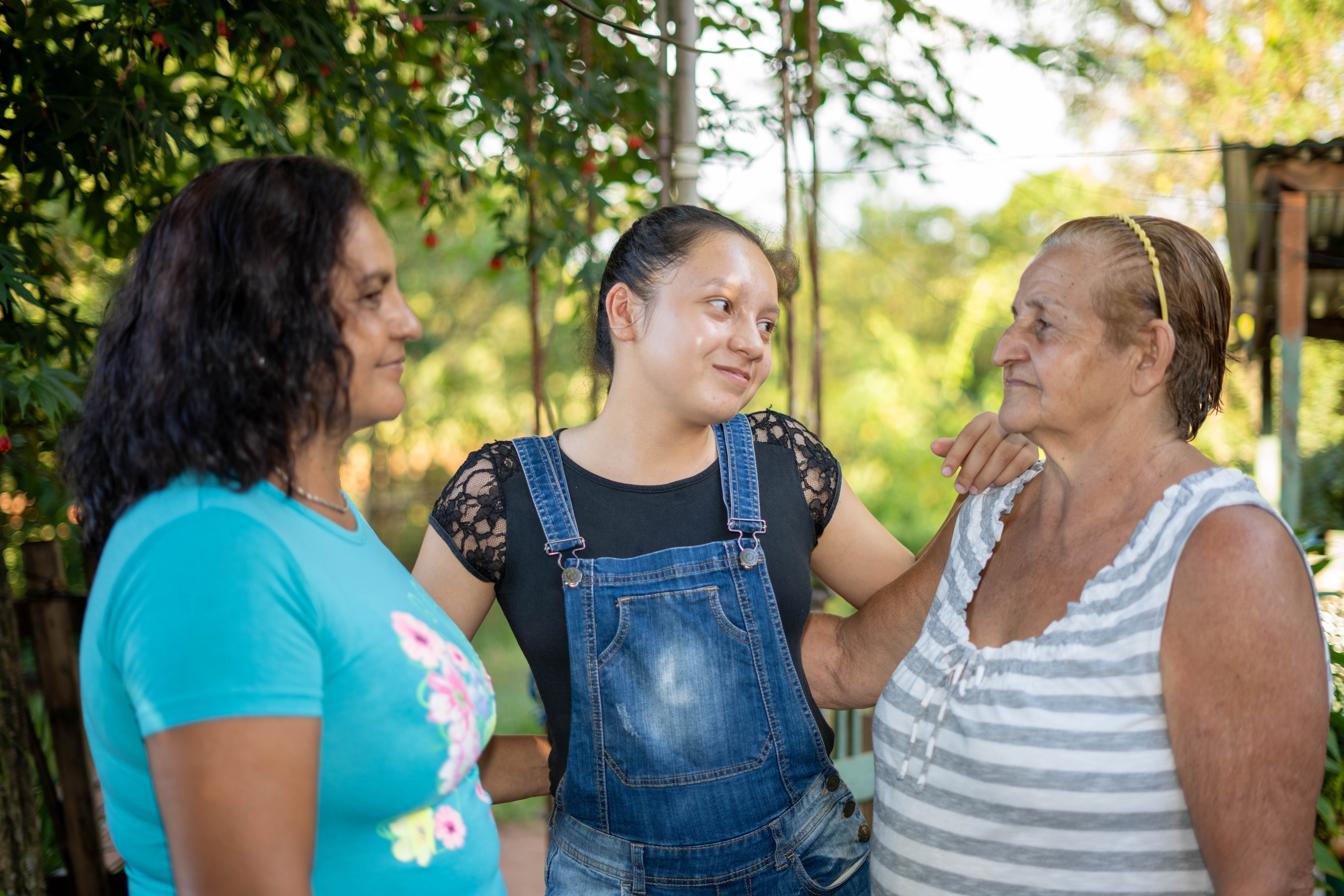
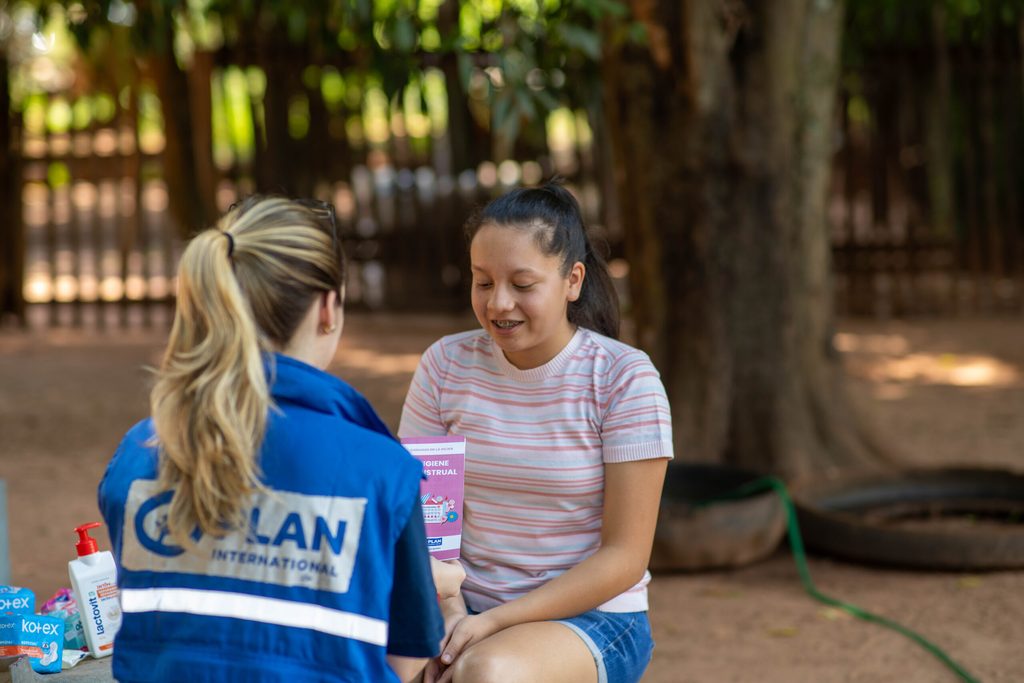
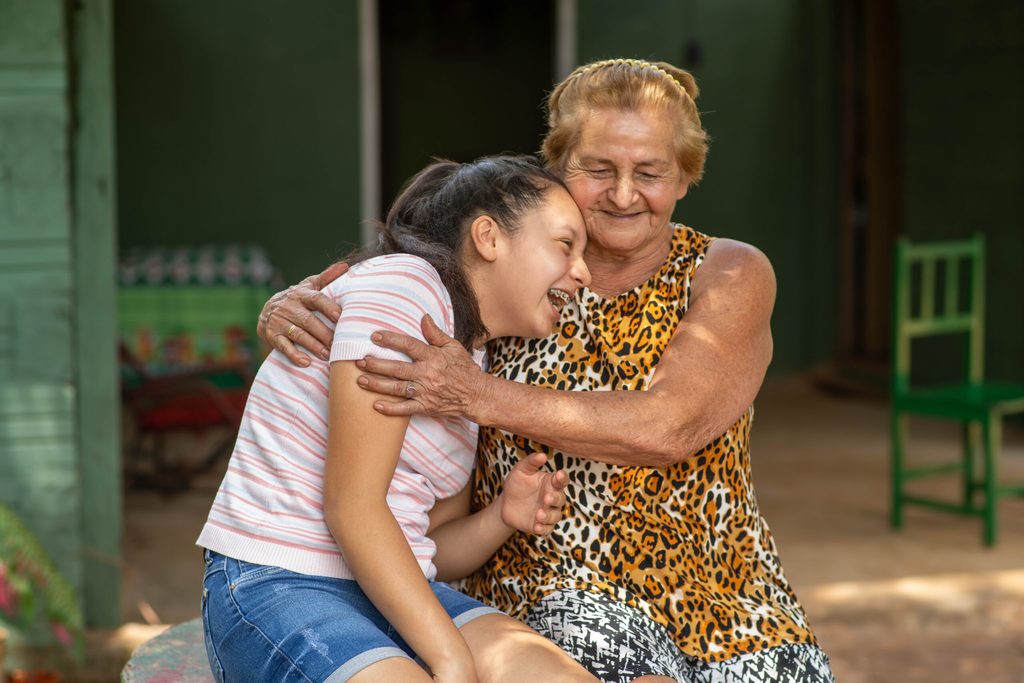
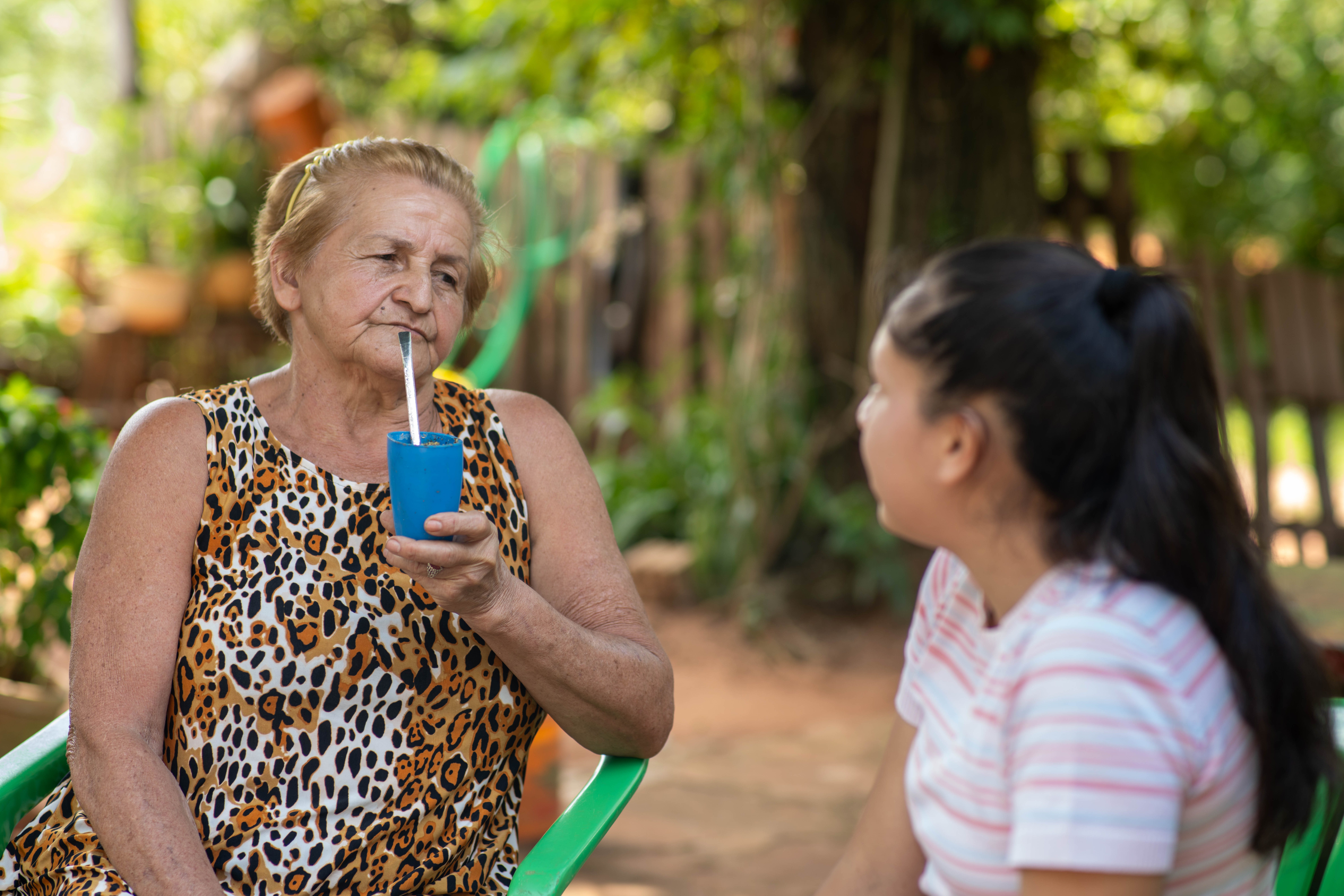
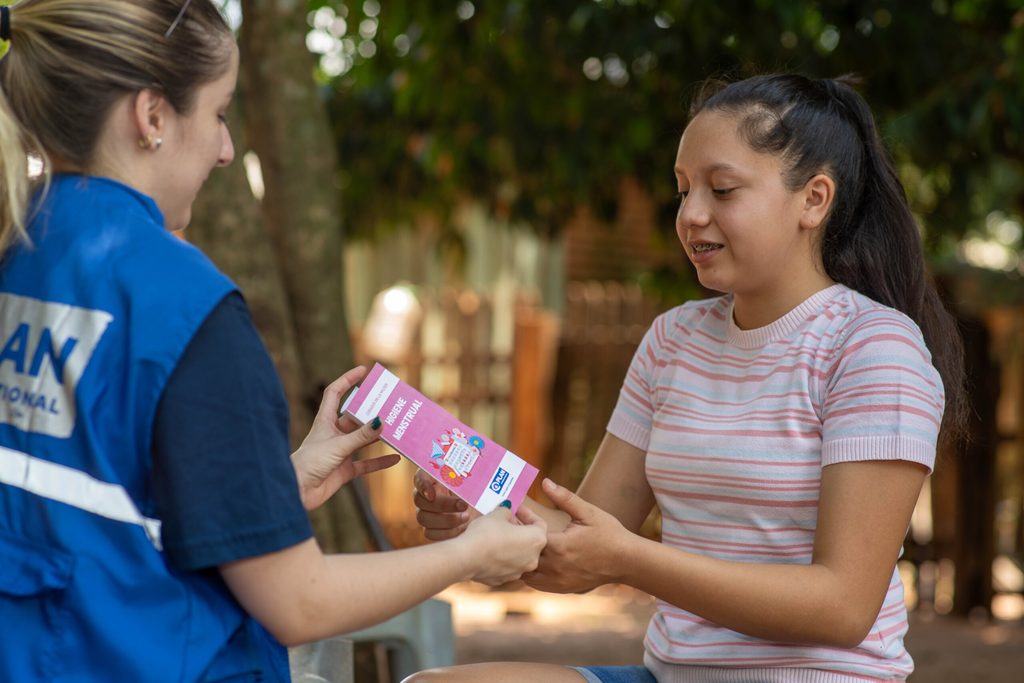
Educating new generations
This is why Ester, the aunt who raised Alma, always spoke to her closely. “I never saw her as a niece; for me, she is my daughter.”
She mentions that her mother was always very open with her. The practices applied to her mother were not applied to her.
Just like the generation of her mother and niece, Ester was also not taught about menstruation in school. “I talk to both my nieces and my sons about the topic, so they are always informed,” says Ester.
For Alma, if menstruation stops being a taboo and is openly discussed at home and taught in school, to both girls and boys, girls would no longer feel ashamed when they get their period. It wouldn’t be a reason for mockery by their male peers, and it would become something normal. “I would like to say to all the girls that having menstruation is something normal, a process that all girls go through as they transition into adolescence, something natural in the development of the human body,” she concludes.
“It’s a process that all girls go through as they transition into adolescence, something natural in the development of the human body.”
Alma, 16
Paraguay’s context
In Paraguay, in 2022 a law was approved with the aim of guaranteeing, as a right, progressive, equitable, and free access to menstrual management products and training on the menstrual cycle for girls, adolescents, and women between menarche (the first occurrence of menstruation) and menopause, prioritising those in situations of socio-economic vulnerability.
Despite this law, to date, there is no regulatory decree establishing procedures for its implementation or determining its source of funding.
Without this happening, thousands of schools and colleges in the country, as well as public health centers, will continue to lack basic menstrual hygiene items and will be unable to provide proper education and training on the subject.
Through initiatives such as the “Adolescent Club” locally implemented in communities in partnership with the family health units of the Ministry of Public Health and Social Welfare, Plan International seeks to improve access to information, education, and comprehensive health services for girls, adolescents, and young people. Likewise, the strengthening of adolescent health care clinics, known as friendly clinics of the Ministry of Health, contributes to ensuring that children and adolescents have safe and specialised spaces for consultation, so they can receive timely and quality guidance to make informed decisions about their well-being and future.



